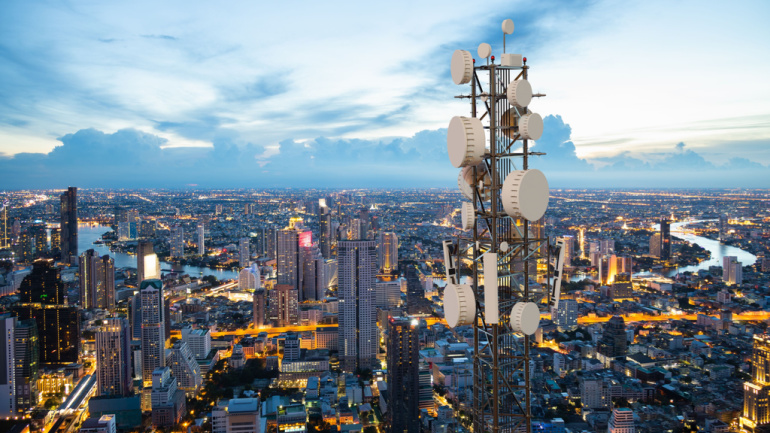GSMA welcomes China Mobile, China Telecom, and China Unicom to the Open Gateway initiative, aiming to enhance services and boost 5G connectivity through API-driven single access points. Collaboration between operators, developers, and cloud providers promises new opportunities and transformative benefits.
The GSMA, a global association of mobile network operators, has unveiled a new project dubbed the GSMA Open Gateway with the goal of offering developers universal access to operator networks. This objective will be accomplished through the creation of a framework of universal network Application Programmable Interfaces (APIs) that will unite the industry behind open APIs. The change signifies a fundamental shift in how the telecoms sector creates and provides services in a world where there is an API economy. At the MWC Barcelona 2023, 21 mobile network carriers will already be demonstrating the potential of the initiative. These demonstrations include an immersive concert experience, a live ‘jam session’, and an immersive gaming and high definition video showcase. The Linux Foundation, along with the GSMA, defines, develops and publishes the GSMA Open Gateway APIs in CAMARA, an open-source project allowing developers to access expanded network capabilities. By using…
Apelby chooses Linxa for its international voice business transformation Apelby Communications has chosen the Linxa Connect, a completely integrated, end-to-end telecom management solution, to revolutionize its global voice business. This platform supports and automates voice wholesale operations in a seamless manner, including rate management, routing, quality control, deal administration, billing, dispute resolution, fraud detection and real-time reporting. High levels of automation, agility and efficiency are offered by the solution, enabling Apelby to re-engineer and improve its business processes. Read more at: https://tinyurl.com/yc7kjfwk Intrado Corporation releases a wearable 911 safety device Intrado has unveiled a wearable safety gadget with a programmable panic button. The badge-sized gadget is a component of Intrado’s Safety Suite Solution, an all-inclusive incident management platform for K–12 schools, institutes of higher education, and organizations of all sizes. Upon user activation, Intrado Safety Suite immediately notifies administrators and personnel and sends the device location and event specifics to…
According to the GSMA’s most recent report on the state of the mobile sector in Europe, challenging market circumstances will have a detrimental influence on 5G adoption, with Digital Decade targets endangered by slower 5G deployment compared to rival global markets. The GSMA noted that 34 European markets had 5G service available as of the end of June 2022, with 108 providers providing commercial services and a user adoption of about 6%. Norway has the highest rate of 5G adoption at 16%, although there is also growth in Switzerland (14%), Finland (13%), the UK (11%) and Germany (10%). According to the Association, average 5G penetration will reach 44% by 2025, with the United Kingdom and Germany predicted to lead with 61% and 59% respectively. Nevertheless, GSMA researchers observed that even these nations were likely to lag behind global counterparts such as South Korea, which is expected to have…
The GSMA has released a whitepaper that specifies 10 key performance indicators (KPIs) for mobile carriers in the areas of environmental, social and corporate governance (ESG). The GSMA estimates that roughly 600 distinct ESG reporting standards are presently in use across the mobile sector. This diversity not only makes assessing the level of success on an industrial scale challenging, but it also puts a great load on operators, who often invest significant time and effort in data gathering and detailing progress, only to generate a report with little value. The KPIs are divided into four groups, with the GSMA explaining why these divisions were made: Environment – Reporting against environmental KPIs can aid internal decision-making, such as how to develop decarbonization policies and deploy cash to increase energy efficiency. Emissions, energy and waste reduction are the KPIs in this area. Digital Inclusion – Tracking success against…
The GSMA, a worldwide organization dedicated to uniting the mobile ecosystem, has cautioned that market imbalances between network operators and online service providers might impede growth in a number of areas of the Internet-based economy, and has urged policymakers to solve the problem immediately. According to the GSMA’s 2022 Internet Value Chain analysis, asymmetric regulation and limits, sector-specific taxes and spectrum charges are straining infrastructure providers’ business models while allowing big tech to prosper. The reliance of Internet services and other growing sectors that are dependent on underlying infrastructure investment must be considered by those in charge of enacting rules and regulations. Infrastructure investment incentives may be restrained by unfavorable taxes, costly regulatory requirements, and other cost-degrading factors, according to the paper. The document urges politicians to analyze the entire tax and regulatory environment, ensuring that enterprises investing in infrastructure are rewarded for building and upgrading the networks…
Vodia now interoperable with Skyetel Vodia has announced the completion of interoperability with Skyetel, an independent telecom carrier. Skyetel clients now have access to Vodia’s certified VoIP telephone system thanks to the proven compatibility of Vodia’s PBX software with Skyetel’s SIP trunks. Skyetel’s multi-tenant SIP trunking platform is set up so that resellers may simply connect to Vodia to provision and manage their DID inventories. Relationship pricing is also available to resellers without the need for contracts, obligations or upfront payments. Read more at: https://tinyurl.com/2nhhhfn5 Nokia updates its in-house routing silicon With the introduction of its new FP5 processor, Nokia has updated its in-house routing silicon, considerably boosting capacity, reducing power consumption and incorporating encryption to improve security. The FP5 has a 4.8 Tbps network processor, which doubles the 2.4 Tbps available on the FP4, and is Nokia’s first chip to handle 800-gig Ethernet routing interfaces. Other benefits include enhanced…
The GSMA has announced that the mobile industry will need an average of 2 GHz mid-band spectrum to meet the data speed requirements of the UN International Telecommunications Union (ITU). The study evaluated 36 cities around the world and concluded that policymakers should license the spectrum of mobile operators in harmonized bands such as 3.5 GHz, 4.8 GHz and 6 GHz to meet ITU requirements by 2030. According to their claims, the additional spectrum will make it possible to use 5G to its full potential. As claimed by the global study, achieving this will reduce the environmental impact and costs for 5G users, as additional spectrum will lessen the carbon footprint of networks by two to three times, strengthening the sustainable development of mobile communications at the same time. In addition, the availability of mid-band frequency spectrum will also improve Fixed Wireless Access (FWA). The research shows that…
DIDWW joins GSMA DIDWW, a global cloud communications service provider, has announced that it has become an associate member of the GSMA, an industry organization that represents the interests of mobile operators around the world. The GSMA supports the latest technological innovations and the development of the mobile ecosystem to promote digital transformation and industrial growth. GSMA membership allows DIDWW to actively take part in technical working groups, establish new business relationships, and develop strategies that will greatly contribute to the wider adoption of hosted VoIP services. Read more at: https://tinyurl.com/4urtcbtz Mediacom to expansion broadband to 500K locations The US operator Mediacom has revealed its plan to provide high-speed broadband to another 500,000 under-serviced homes and businesses over the next three years. This scaling-up will include a combination of new facilities supported by state and federal broadband grants, line extensions and the development of fixed wireless access (FWA) using recently…
The two companies, Deutsche Telekom Global Carrier and Orange International Carriers, have announced the successful completion of a Proof of Concept (PoC) project to improve IPX services using blockchain technology. According to the statement, they were able to validate that blockchain can be used by operators to expedite the automatic transaction of end-to-end network KPIs between providers. This provides operators with an opportunity to offer improved quality of service (QoS) and enhance network performance forecasting and incident management. The cooperation between the carriers for this initiative was announced back in June. IPX systems are fundamental components for enabling international and domestic roaming services. Also, full-service level agreements (SLAs) on critical IPX networks are essential for ensuring that mobile operators can provide the best network quality. The companies said the results of the study will be presented to the GSMA. Emmanuel Rochas, CEO of Orange International Carriers, said:…













